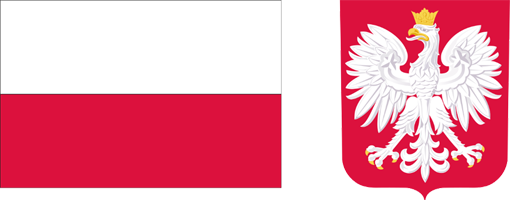Current issue
Archive
About the Journal
Aims and Scope
Advisory Board
Members of the Editorial Board
List of reviewers
Publishing process
Publishing Ethics and Malpractice Statement
Personal data protection (GDPR)
Creative Commons License
CrossRef Member / Similarity Check
For Authors
Call for papers
Guidelines for authors
Submitting a manuscript through the editorial system – step by step
For Reviewers
Peer review process
Guidelines for reviewers
Submitting a review – step by step
Contact
RESEARCH PAPER
DEPENDENCY OF AGRICULTURE ON CHEMICAL INDUSTRY PRODUCTS DERIVED FROM CRUDE OIL AND NATURAL GAS
1
University of Siedlce
Submission date: 2024-03-05
Final review date: 2024-05-30
Acceptance date: 2024-10-04
Publication date: 2025-03-31
Zagadnienia Ekonomiki Rolnej / Problems of Agricultural Economics 2025;382(1):85-107
KEYWORDS
JEL CLASSIFICATION CODES
Q 10
Q 35
TOPICS
ABSTRACT
Aim:
The purpose of the study is to show the extent to which agriculture is dependent on chemical processing products. It was hypothesized that cutting off agriculture from the products produced by the chemical industry could lead to the collapse of food production.
Material and methods:
The article develops the problem presented in the publication “Dependence on Chemical Industry Products Made From Oil and Gas – On the Way to the Annihilation of Humanity” (Szarek, 2023). The material inspired the presentation of the importance of oil and gas processing products (OGPP) in agriculture.
Results:
The analysis of the material in this article allows us to conclude that agriculture uses OGPP products on a large scale. Cutting off from these products can lead to a decline in crop yields, associated with lack of nitrogen fertilization, lack of chemical protection, hindered ability to apply fertilizers and pesticides, lack of materials for irrigation and sprinkler systems. In light of the analysis of the importance of chemical processing products, it was found that pesticides are the most important for agriculture, followed by nitrogen fertilizers. Tires for agricultural machinery and equipment are very important for modern, high-performance agriculture. In the case of livestock production, detergents were assigned the greatest importance.
Conclusions:
Analyzing the material in this article and knowing the scale of agriculture’s dependence on OGPP products, it is possible to identify the following directions for agricultural development that will counteract dependence on chemical products: 1) development of precision agriculture focused on proper fertilization and crop protection, 2) development of precision agriculture based on the use of inputs from sources other than oil and natural gas, 3) intensification of the development of organic farming and yield increases on those farms where inputs from sources other than oil and gas will be the basis.
The purpose of the study is to show the extent to which agriculture is dependent on chemical processing products. It was hypothesized that cutting off agriculture from the products produced by the chemical industry could lead to the collapse of food production.
Material and methods:
The article develops the problem presented in the publication “Dependence on Chemical Industry Products Made From Oil and Gas – On the Way to the Annihilation of Humanity” (Szarek, 2023). The material inspired the presentation of the importance of oil and gas processing products (OGPP) in agriculture.
Results:
The analysis of the material in this article allows us to conclude that agriculture uses OGPP products on a large scale. Cutting off from these products can lead to a decline in crop yields, associated with lack of nitrogen fertilization, lack of chemical protection, hindered ability to apply fertilizers and pesticides, lack of materials for irrigation and sprinkler systems. In light of the analysis of the importance of chemical processing products, it was found that pesticides are the most important for agriculture, followed by nitrogen fertilizers. Tires for agricultural machinery and equipment are very important for modern, high-performance agriculture. In the case of livestock production, detergents were assigned the greatest importance.
Conclusions:
Analyzing the material in this article and knowing the scale of agriculture’s dependence on OGPP products, it is possible to identify the following directions for agricultural development that will counteract dependence on chemical products: 1) development of precision agriculture focused on proper fertilization and crop protection, 2) development of precision agriculture based on the use of inputs from sources other than oil and natural gas, 3) intensification of the development of organic farming and yield increases on those farms where inputs from sources other than oil and gas will be the basis.
Share
RELATED ARTICLE
We process personal data collected when visiting the website. The function of obtaining information about users and their behavior is carried out by voluntarily entered information in forms and saving cookies in end devices. Data, including cookies, are used to provide services, improve the user experience and to analyze the traffic in accordance with the Privacy policy. Data are also collected and processed by Google Analytics tool (more).
You can change cookies settings in your browser. Restricted use of cookies in the browser configuration may affect some functionalities of the website.
You can change cookies settings in your browser. Restricted use of cookies in the browser configuration may affect some functionalities of the website.




